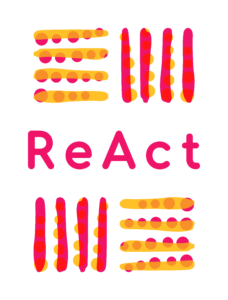It is the unfortunate case that sometimes abuse and harassment can happen during employment. Abuse and harassment is not always physical – it can be verbal abuse too.
In Malaysia, there is no crime or law of harassment, but the Department of Safety and Health defines abuse in employment as incidents where employees are abused, threatened, assaulted or put through offensive behaviour in circumstances related to their work.
Human trafficking: what is it?
Human trafficking is when a person is manipulated (tricked), controlled and forced to do things against their will. If someone is ‘trafficked’, they are usually being exploited (used) in some way (e.g. sexually, physically) to benefit someone else. Human trafficking also usually involves people being transported, bought and sold.
If you think you have been trafficked to Malaysia, you can consider seeking help from the police. The police will investigate and if you are found to be a victim of human trafficking, the police may help you to stay in a government-run shelter. The shelter may provide you with food, medical care, social activities, religious provisions, security and a monthly allowance. If you think you might have been trafficked, consider contacting the police or an NGO listed below for help.
Sexual Assault
In Malaysia, sexual assault and rape is a crime. Rape is defined as “sexual intercourse (sex) with a woman against her will (without her consent). Therefore, rape is a crime that can only be committed against women.
An employer who abuses their position to pressure or force their worker into having sex may be found guilty of rape.
The maximum punishment for someone who is found guilty of rape is 20 years in prison and caning.
Physical Assault
Under section 351 of the Penal Code, it is a crime to physically assault another person. Under Malaysian law, a person is guilty of assaulting another person if they make any movement with the intention to (wanting to) cause the other person to be scared that they will get hurt.
Under Malaysian law, it is not possible to assault someone just by words. Assault can only be committed if a person makes a movement towards another person, with the intention (knowledge) that the other person will get scared. Therefore:
☒ Threatening words such as “I’m going to punch you” is not considered assault
☑ Picking up a stick and saying “I’m going to beat you” may be considered assault, as the action of picking up the stick and the words used may amount to assault.

Wrongful Restraint
Under Section 339 of the Penal Code, it is a crime to ‘wrongfully restrain’ another person. Wrongful restraint refers to when a person intentionally (with knowledge) prevents another person from moving to or passing by a place they are lawfully allowed to go.
An example of wrongful restraint is: Adam obstructs (blocks) the road outside Jenny’s house. Jenny has the legal right to use the road outside her house. In blocking Jenny, Adam may have committed wrongful restraint against Jenny.
If a person is found guilty of wrongful restraint, the maximum punishment they can receive is one month in prison, or a fine of up to RM1000 (or both).
Wrongful Confinement
Under section 340 of the Penal Code, it is a crime to ‘wrongfully confine’ another person. Wrongful confinement means when a person blocks or prevents another person from leaving a place, even when that person has the legal right to leave.
An example of wrongful confinement may be: Anthony is the employer of Betty, an MDW. Betty works in Anthony’s home and she has a rest day on Sunday. If Anthony locks all the doors to his house from the outside and locks Betty inside on Sunday, Anthony may be guilty of wrongfully confining Betty.
If a person is found guilty of wrongful confinement, they may be punished with a maximum prison sentence of 1 year, or a fine of RM2000 (or both).
Helpful tips
- Call the police (999) immediately if you are in danger
- Consider submitting a police report. If you decide to make a police report, make sure to ask the police for a copy of the report and double check that the information on the report is correct
- Seek help and support from a lawyer or NGOs See the resources list below for organisations that may be able to help you.
- Consider submitting a civil claim. If you wish to, you can try to submit a case to the court to have the assaulter pay compensation (money) to you for what you have been through. However, it is advised that you seek legal help from a lawyer or NGO first.
- Get help as soon as possible: don’t delay in seeking help.


